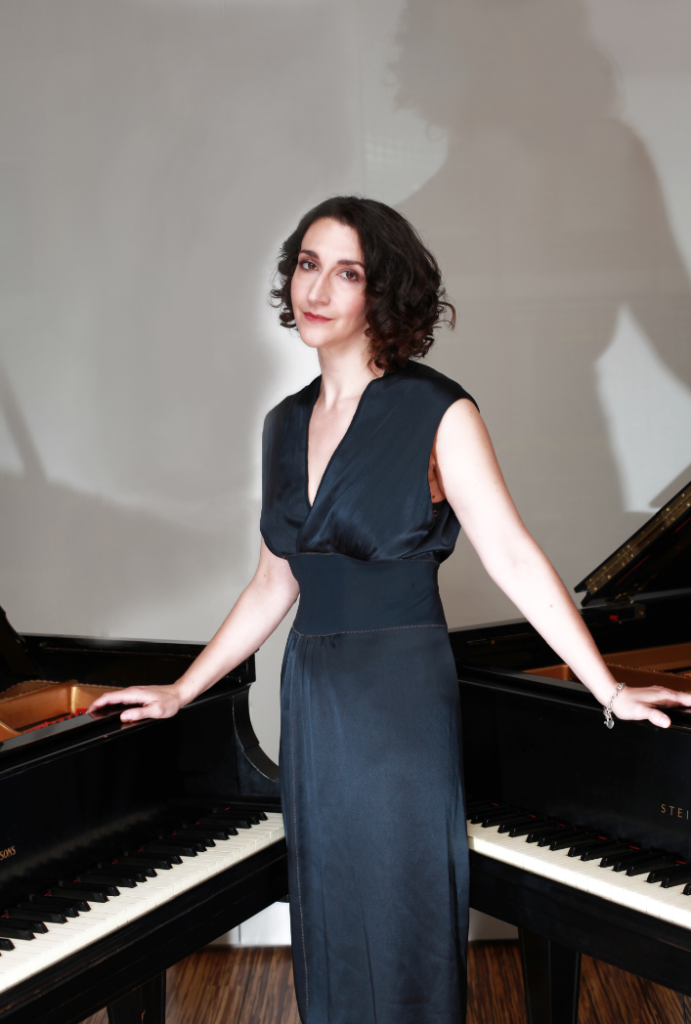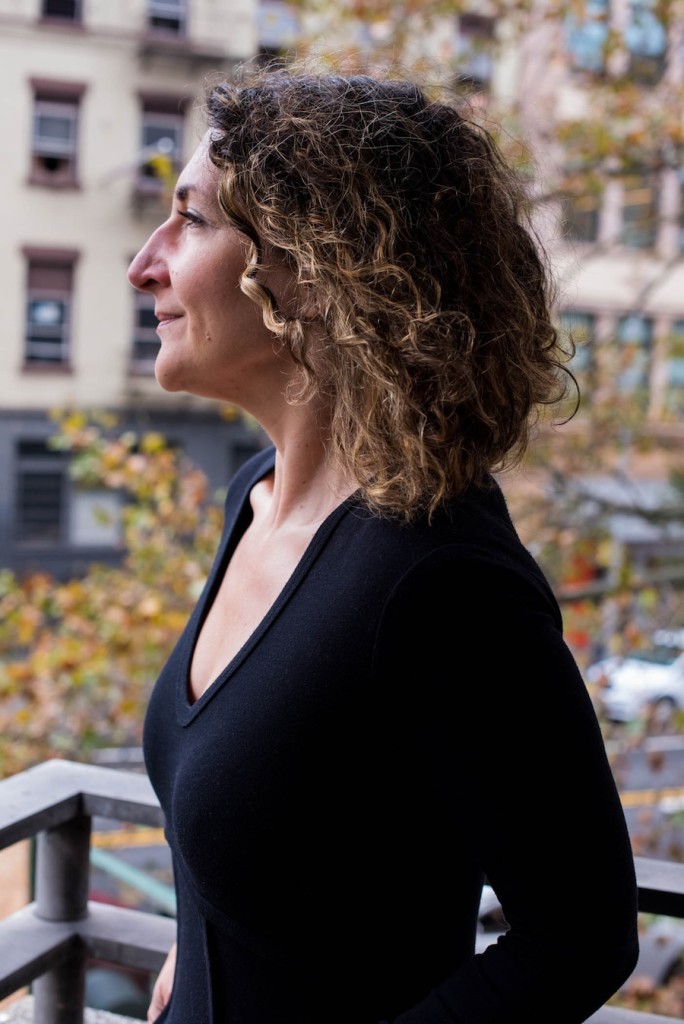Oct
12
Sun October 12th, 2014
5:00PM
Main Space
Minimum Age: All Ages
Doors Open: 4:00PM
Show Time: 5:00PM
Event Ticket: $15/$20/$25
free for members
Peter Hill and Marilyn Nonken: solo piano and two pianos
Music by Olivier Messiaen (1908–92)
Peter Hill’s recital with Marilyn Nonken is a chance to hear the New York premiere of a lost masterpiece by Messiaen, discovered by Peter Hill last year among Messiaen’s sketches. La Fauvette Passerinette was composed in the summer of 1961. It was almost certainly intended as the start of a second cycle of pieces on French birdsongs to go with the Catalogue d’oiseaux (1956–58); but by the end of 1961 Messiaen found himself busy with the first of a succession of orchestral works that would occupy him for the rest of the decade, and La Fauvette Passerinette was put aside and forgotten.
The inspiration for La Fauvette Passerinette came from a week in May 1961 that Messiaen spent in the Hérault region of central southern France. Messiaen’s manuscript is in an advanced state of completion, with even the piano fingering in place; passages still in the composer’s shorthand were realised by Hill by cross-referencing to the birdsong notations by Messiaen on which the piece is based. The music shows considerable differences with the earlier Catalogue d’oiseaux, with the birdsong more richly harmonised and with a new sense of development, as the music of the main soloist, the sub-alpine warbler, transforms from the lively but lyrical interplay of the opening into a brilliant, almost jazzily-syncopated closing toccata.
Peter Hill is then joined by the New York pianist Marilyn Nonken for a performance of Messiaen’s Visions de l’Amen, a pinnacle of the two-piano repertoire. Composed in 1943, Visions de l’Amen was a work of key importance in Messiaen’s career as the first in a long line of compositions inspired by Yvonne Loriod. As a 17-year-old pianist she had been assigned to Messiaen’s at the Paris Conservatoire, to which he had been appointed not long after his repatriation from the prisoner-of-war camp in which the Quartet for the End of Time had been premiered on 15 January 1941. Visions initiates a new era in which the piano, under Loriod’s inspiration, became the central focus of Messiaen’s work. Conceived as a virtuoso vehicle for Messiaen and his brilliant young pupil (who eventually, in 1961, was to become his second wife) the music exploits their very different temperaments and techniques by assigning entirely separate roles to the two pianos. The first (given to Loriod) has the tigerish pianism, the bells, birdsongs and swirls of decorative figuration, while Messiaen’s more sonorous part carries the main musical ideas and underlying harmonies.
The seven movements of Visions de l’Amen trace a trajectory from the nebulous pianissimo of the opening ‘Amen of Creation’ to the extraordinary brilliance of the final Amen, in which all creation is received into Paradise. This is one of Messiaen’s most spectacular works, taking in the rhythmical layering in the second Amen, inspired by planet Saturn, the ecstatic harmonies of the Amen of Desire, and the chorusing birds of the Amen of the Angels, Saints and birdsongs. The work ends with unforgettable virtuosity, Messiaen’s theme of creation surrounded by pealing bell chimes on piano 1, as the precious stones of the Apocalypse ‘chime, clash, dance, color and perfume the light of Life’.
Seated: $20 advance, $25 day of show
Standing: $15 advance, $20 day of show
**************************
This performance will be a partially seated event, in-the-round.
TABLE SEATING POLICY
Table seating for all seated shows is reserved exclusively for ticket holders who purchase “Table Seating” tickets. By purchasing a “Table Seating” ticket you agree to also purchase a minimum of two food and/or beverage items per person. Table seating is first come, first seated. Please arrive early for the best choice of available seats. Seating begins when doors open. Tables are communal so you may be seated with other patrons. We do not take table reservations.
A standing room area is available by the bar for all guests who purchase “Standing Room” tickets. Food and beverage can be purchased at the bar but there is no minimum purchase required in this area.
All tickets sales are final. No refund or credits.
Marilyn Nonken: Spectral Salon

Upon her 1993 recital debut, Marilyn Nonken was heralded as “a determined protector of important music” (New York Times). Since then, she has been recognized as “one of the greatest interpreters of new music” (American Record Guide). Writes Fanfare: “Her voicings are exquisite, her pedaling throughout is a model to be studied, and, when necessary, her virtuosity is equaled only by the insight and passion with which every piece is imbued.” (Marc Medwin, 2015)
A student of David Burge at the Eastman School, Marilyn Nonken received a Ph.D. in musicology from Columbia University. Her monograph The Spectral Piano (Cambridge University Press, 2015) has been received as “a screaming success …. Few books can boast as much, and it is gratifying to encounter an international concert performer who can make so engaging a discourse around her core repertoire.” (Bob Gilmore, Tempo). She has contributed chapters to Perspectives on the Performance of French Piano Music and Messiaen Perspectives (both Ashgate). She guest edited the issue of Contemporary Music Review “Performers on Performance” and has contributed articles to the Journal of the Institute for Studies in American Music, Journal of Hand Therapy, Perspectives of New Music, Current Musicology, Ecological Psychology, and Music and Medicine.
Marilyn Nonken’s performances have been presented at such venues as Carnegie Hall, Lincoln Center, Miller Theatre, the Guggenheim Museum, (Le) Poisson Rouge, and Roulette (New York), IRCAM and the Théâtre Bouffe du Nord (Paris), the ABC (Melbourne), Instituto Chileno-Norteamericano (Santiago), the Music Gallery (Toronto), the Phillips Collection, and Menil Collection, and conservatories and universities around the world. Festival appearances include Résonances and the Festival d’Automne (Paris), When Morty Met John, Making Music, Works and Process, Composers Now, and NYX II: New York Prog and Experimental Music Festival (New York), American Sublime (Philadelphia), The Festival of New American Music (Sacramento), Musica Nova (Helsinki), Aspects des Musiques d’Aujourd-hui (Caen), Messiaen 2008 (Birmingham, UK), ATEMPO (Caracas), New Music Days (Ostrava), Musikhøst (Odense), Music on the Edge (Pittsburgh), Piano Festival Northwest (Portland), Unruly Music (Milwaukee), and the William Kapell International Piano Festival and Competition. Highlights of recent seasons include performances of Hugues Dufourt’s Erlkönig, Claude Vivier’s Shiraz, and Tristan Murail’s complete piano music, as well performances of Olivier Messiaen’s Visions de l’Amen in Houston and New York (with Sarah Rothenberg and Peter Hill, respectively). Composers who have written for her include Pascal Dusapin, Michael Finnissy, Joshua Fineberg, Liza Lim, and Tristan Murail. Over the next two concert seasons, she will premiere works written for her by Marcos Balter, Edmund Campion, Richard Carrick, Victoria Cheah, Brian Erickson, Christopher Trapani, and Nina C. Young, and tour in America and Europe with Gerard Grisey’s Vortex Temporum.
Marilyn Nonken has recorded for New World Records, Mode, Lovely Music, Albany, Metier, Divine Art, Innova, CRI, BMOP Sound, New Focus, Kairos, Tzadik, and Bridge. Director of Piano Studies and Associate Professor of Music and Music Education at New York University’s Steinhardt School. She is a Steinway Artist.
Marilyn Nonken official site
Listen on WQXR: Marilyn Nonken – Live from (Le) Poisson Rouge on November 9, 2010


